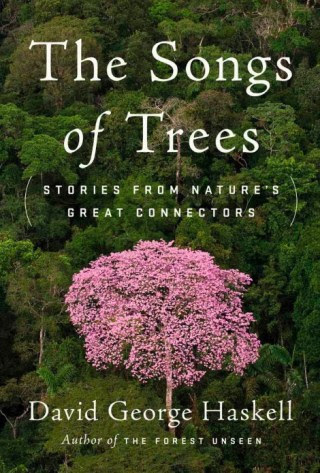"The trouble is that we have a bad habit, encouraged by pedants and
sophisticates, of considering happiness as something rather
stupid. Only pain is intellectual, only evil interesting. This is the
treason of the artist: a refusal to admit the banality of evil and the
terrible boredom of pain. But to praise despair is to condemn delight, to
embrace violence is to lose hold of everything else. We have almost
lost hold; we can no longer describe a happy man, nor make any
celebration of joy."
"The Ones Who Walk Away From Omelas"
I am profoundly saddened to hear of the death of Ursula Kroeber Leguin on January 22, 2018 at the age of 88. I cannot express how important this wise mentor has been to me from the first time I opened one of her novels. It seems very strange, the thought of living in a world that she is no longer in, where her voice is no longer heard.
Back in December of 2015 I sent a photo of the painting below to her, along with a letter expressing my appreciation. I was pleased to at last be able to thank her.
 |
| "Ursula Leguin as Spider Woman, Weaving the Worlds Into Being" (2015) |
Here is a post I wrote about Ursula Leguin back in 2011 - I felt like sharing it again.
December 17, 2011
 There is a kind of synchronistic personal mythos in this for me. As a young art student at Berkeley, almost every day I trudged past the Anthropology exhibits, fascinated by the magical arrowheads and woven fabric in display cases, on my way to the painting studios in Kroeber Hall. Kroeber Hall was named after her famous father, anthropologist Alfred L. Kroeber. I was not to discover Ursula Leguin's worlds until many years later - but in every novel, I always see the eye of the anthropologist's daughter, creator of the star wide "Ecumen", with it's many complex cultures. Alfred L. Kroeber is especially known for his study of Ishi, the last survivor of the California Yana. Ishi's story was told by Ursula's mother, the writer Theodora Kroeber, in her famous book Ishi In Two Worlds.
There is a kind of synchronistic personal mythos in this for me. As a young art student at Berkeley, almost every day I trudged past the Anthropology exhibits, fascinated by the magical arrowheads and woven fabric in display cases, on my way to the painting studios in Kroeber Hall. Kroeber Hall was named after her famous father, anthropologist Alfred L. Kroeber. I was not to discover Ursula Leguin's worlds until many years later - but in every novel, I always see the eye of the anthropologist's daughter, creator of the star wide "Ecumen", with it's many complex cultures. Alfred L. Kroeber is especially known for his study of Ishi, the last survivor of the California Yana. Ishi's story was told by Ursula's mother, the writer Theodora Kroeber, in her famous book Ishi In Two Worlds. "We are volcanoes. When we women offer our experience as our truth, as human truth, all the maps change. There are new mountains"
Reading "Buffalo Gals and Other Animal Presences", or "Always Coming Home" I always see the anthropologist, her profound respect and understanding for the lost worlds of people like the Yahi, and her insight into the complexity, creativity, and infinate possibilities of human cultures.
One of my favorite stories is "May's Lion". Here the author contrasts the experiences of two old women, living alone in the same land, but in different eras. Each is visited by a dying mountain lion. "May" lives out on the edge of some small town, perhaps in California. She talks to her cow, she loves her bit of land. "Rain's End" lives there too, but she is a native woman from an earlier time. The lion has come to both women to die. Rain's End knows this, and sits with the lion, offering prayers for it's journey into the next world, understanding the honor the lion has given her. May also sits with the lion, transcending her fear. But her grandson arrives and shoots the lion. And in some way she cannot fully understand, May knows that something important has been lost, something sacred.
"There are no right answers to wrong questions."
To add a footnote to (my own story) I returned to Berkeley to open a gallery in 1997, and became friends with Arjuna, a storyteller and Tuva singer who had opened a performance space just a block away. He created a powerful play and songs based on the story of Ishi, and for years gave performances on the anniversary of his death. Arjuna continues to make his music in the California desert (for information visit his website Harmonic Fuzion). When I left Berkeley in 2000, he gave me a tape of "Ishi" and a Tibetan singing bowl, and I left him a copy of "Always Coming Home", by the daughter of the man and woman who inspired his music.
Circles. Sometimes I wonder, how are the stories we love and the stories we end up living really separate? Thank you, Ursula Leguin, for weaving me into the Great Story.
"The only thing that makes life possible is permanent, intolerant uncertainty: not knowing what comes next"
Ursula K. Leguin



















 For the Homeric Greeks, kleos, fame, was made of song. Vibrations in air contained the measure and memory of a person’s life. To listen was therefore to learn what endures.
For the Homeric Greeks, kleos, fame, was made of song. Vibrations in air contained the measure and memory of a person’s life. To listen was therefore to learn what endures.







